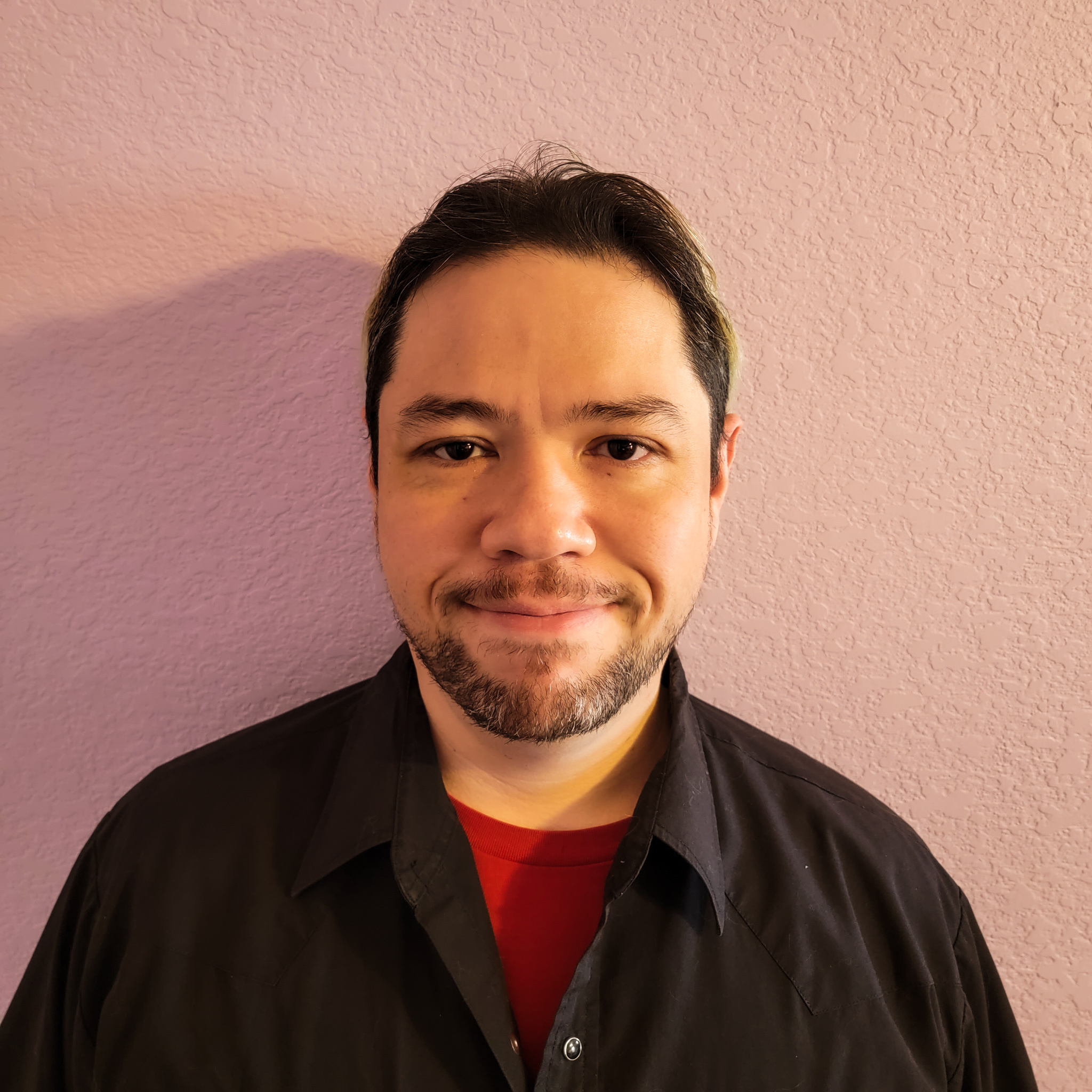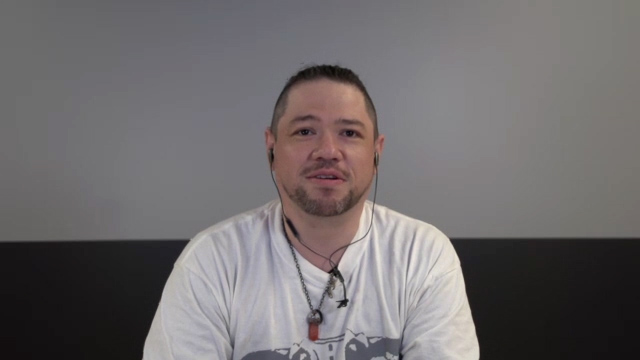WE GREW VANA'DIEL is a series of interviews with those who were involved in the development of FINAL FANTASY XI (FFXI), as well as guests from other companies. In this installment, we interviewed Matt Hilton and Anthony Caraway from FFXI's North American Community team. What were their perspectives on FFXI as they relayed announcements and organized fan events in the West? In this second part, we asked them to talk about how players in North America reacted to FFXI's announcement and release, as well as what they believe are FFXI's strengths as a game.

Senior Online Community Director of Square Enix America. As leader of the North American Community team for FFXI and FFXIV, Matt has hosted various events in the U.S. and is a familiar face to Japanese players as well.

Senior Online Community Manager of Square Enix America. Having been born and raised in Japan, Anthony translates between English and Japanese in both his public and private life. Known as “Tony” by fans and within the company.
MMORPG-related expectations and concerns
How did fans in North America react when FFXI, the latest numbered title in the FF series, was announced as an MMORPG?
- Anthony
We also have plenty of fans of the series in North America, and many of us couldn't wait for the latest FF title to be released as an MMORPG. In fact, my impression is that the majority of players who started with the North American launch were fans of the series. Additionally, the fact that it was an MMORPG that could be played with a controller seemed to be a big motivation as well.
When FFXI was announced as an MMORPG, we saw a certain level of anxiety from Japanese players who were unfamiliar with online games.
Was there a similar sentiment among North American players?- Anthony
I didn't see too many comments like that. Most seemed fairly receptive to the fact that FFXI was going to be an MMORPG. Instead, we saw more concerns about obtaining the PlayStation 2 network adapter, which wasn't readily available in North America.
- Matt
For many gamers at the time, MMORPGs were something special and different from other types of video games. FFXI was a particularly unique title that offered a whole new experience for FINAL FANTASY players.
Video games were only taking their first steps online at the time, but here was FFXI offering a chance to connect with thousands of other people around the world. The barriers to online gaming at the time didn't dull the level of excitement that my friends and I had, and I believe quite a few gamers around my age began their first steps online in Vana'diel. It was simply astounding, and that's why I've also been playing ever since the Japanese version was released.

How did they react to having both English and Japanese players on the same Worlds?
- Matt
It was a fresh experience not only for the North American community, but for all players worldwide. For example, North American players are often known for speaking candidly, and I'm sure conversing with them was an unusual experience for Japanese players.
What stands out to you about FFXI?
When FFXI was released, there were already other MMORPGs such as Ultima Online* and EverQuest*. What do you think sets FFXI apart from its predecessors?
* Ultima Online is an MMORPG released in 1997 widely considered to be a pioneer of the genre.
* EverQuest is an MMORPG released in North America in 1999.- Anthony
I believe one of the most significant features of FFXI is how it can be played with a controller, unlike conventional MMORPGs which are played with mouse and keyboard on a PC. It's also easy to chat with party members, thanks to how FFXI's combat system is centered around auto-attacks. In other games, you're often too busy controlling your character to chat during battle, whereas the combat in FFXI generally gives you ample time to communicate with your party.
- Matt
One of the key points FFXI does differently from other titles is being able to play on a global server with other players. Anyone from any country in the world can play in the same world. Speaking from my experiences, I started on the Japanese version, did my best to learn the language, and made friends in Japan whom I later visited in real life and toured together with.
Other MMORPG titles focus on having local servers based on country or region, but FFXI players around the world are connected through Vana'diel, which I consider to be a key difference of the game. Being able to easily communicate with people in other parts of the world is definitely a great aspect about FFXI.
- Matt
Another point where FFXI stands out is the ability to play all the different jobs and classes on a single character. In most other games even today, when you want to play another class or job, you must make a new character and level it from scratch. In FFXI however, you can play all the different jobs on one character, and it's great to be able to try them all and choose the one that best suits your playstyle.
That said, leveling up each job was quite a challenge.
- Matt
That's true. (laughs)
Leveling up your main and support jobs was a challenge. But at the same time, it was fun to discuss job combinations and coordinate around each other like “You pick that support job, I'll pick this one.” The ability to combine different jobs is certainly a unique element of FFXI.
- Matt
In some situations, the support job is more important than the main job. I mostly played as a white mage, but there were times in HNM battles where it was essential to set summoner as my support job to have Aerial Armor. I would also often play red mage with dark knight as my support job so I could use Chainspell and cast spells in rapid succession to keep a monster stunned.
I guess that was a common tactic everywhere. (laughs) Anthony, you were also quite involved in FFXI, what were your experiences as a normal adventurer?
- Anthony
I wanted to bridge the English and Japanese communities, so I was the leader of a linkshell with both Japanese and Western members. I eventually became a leading member in Dynamis and HNM linkshells too, so you could say I was pretty involved. Whenever our linkshell had conversations, I translated the English messages into Japanese and vice-versa, and as I did so, both sides eventually became capable of holding conversations in each other's languages. I was playing hardcore like that for about eight years, but I haven't played as hardcore since my kids were born.

So back when you were just another player, you were already bridging the Japanese and English communities.
- Anthony
This one time, Japanese and English HNM linkshells had a disagreement over a certain monster which broke out into a full-on quarrel. In order for us to determine a turn system, I had their linkshell leaders and my own linkshell meet up at Dragon's Aery, then stood in as the mediator for their discussion. As you'd expect, the Japanese and overseas communities have different mindsets, so what I learned from that experience came in handy in my work later on.
Part 3 & 4 will be available on December 21, 2022.




